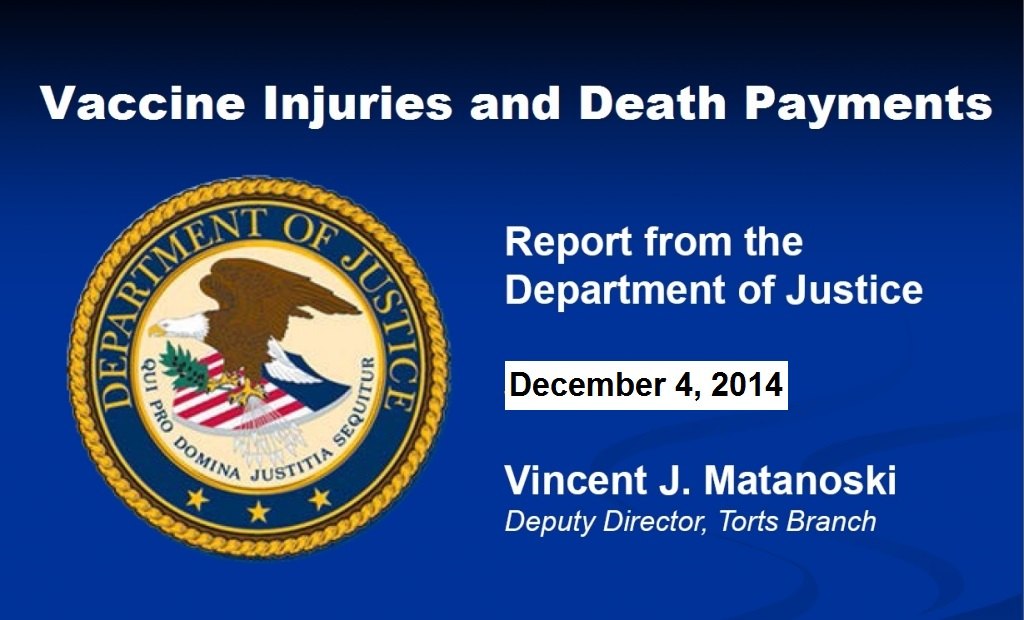
Title added since no title was on the original.
Health Impact News Editor
The December 2014 report from the Department of Justice on damages paid by the U.S. Government to vaccine victims was recently published by the U.S. Department of Health and Human Resources. There were 180 cases of vaccine injuries decided. 134 cases received compensation, while 46 cases were denied.
Most of the U.S. public is unaware that a U.S. citizen, by law, cannot sue a pharmaceutical company for damages resulting from vaccines. Congress gave them total legal immunity in 1986, and that law was upheld by the U.S. Supreme Court in 2011. There is a special “vaccine court” called the National Vaccine Injury Compensation Program that is funded through a tax on vaccines. If you are injured or killed by a vaccine, you must hire an attorney and fight tax-funded government attorneys to seek damages, as you cannot sue the drug manufacturers.
As you can see from the report below, it can take years to reach a settlement. Therefore, this report probably only represents a tiny fraction of the actual number of people harmed or killed by vaccines, since it is so difficult to fight the government in court to win a settlement.
This report clearly shows that the flu vaccine is the most dangerous vaccine in America. 134 cases were awarded settlements for vaccine injuries, with 79 of the settlements being for the flu shot, including three deaths.
Most of the settlements for injuries due to the flu shot were for Guillain-Barré Syndrome. Other flu vaccine injuries included: acute disseminated encephalomyelitis, transverse myelitis, shingles (herpes zoster), neuropathic demyelination, seizures, neuropathy, brachial plexopathy, rheumatoid arthritis, optic neuritis, and Bell’s palsy.
You didn’t read about this in your local or national news, did you? Here are copies of the actual report:
Hundreds of People are Afflicted with Guillain-Barré Syndrome Every Year from the Flu Shot
As can be seen in this report and other reports of government payments for vaccine injuries, Guillain-Barré Syndrome (GBS) is the most common side effect and injury due to the flu vaccination.
What is Guillain-Barré Syndrome? Here is the definition the CDC gives:
Guillain-Barre Syndrome (GBS) is a rare disorder in which a person’s own immune system damages their nerve cells, causing muscle weakness and sometimes paralysis. GBS can cause symptoms that last for a few weeks. Most people recover fully from GBS, but some people have permanent nerve damage. In very rare cases, people have died of GBS, usually from difficulty breathing.
Compare this to the CDC definition for Polio:
Polio is an infectious disease caused by a virus that lives in the throat and intestinal tract. Up to about 72% of susceptible persons infected with polio have no symptoms. However, infected persons without symptoms can still spread the virus and cause others to develop polio. About 24% of infected susceptible persons have minor symptoms such as fever, sore throat, upset stomach, or flu-like symptoms and have no paralysis or other serious symptoms. About 1-5% develop aseptic meningitis with stiffness of the back or legs, and in some persons increased or abnormal sensations a few days after the minor illness resolves. These symptoms typically last from two to ten days, followed by complete recovery. Less than 1% of polio cases result in paralysis of the limbs (usually the legs). Of those cases resulting in paralysis, 5-10% of the patients die when the respiratory muscles are paralyzed.
Here is one story of a man who nearly died from GBS resulting from a flu shot, and here is a recent story of a nurse who was awarded $11.6 million after being paralyzed by the flu shot.
The fact that GBS is one of the side effects of the annual flu vaccine is well known and documented. The package inserts of flu vaccines even lists a warning regarding GBS:
“If Guillain-Barré Syndrome (GBS) has occurred within 6 weeks of previous influenza vaccination, the decision to give AFLURIA should be based on careful consideration of the potential benefits and risks.”
Did you know that? Are you screened and asked questions prior to receiving a flu vaccine to see if you have any risks based on pre-existing conditions?
How many people are injured with GBS due to a flu shot? According to the CDC, “no more than 1 or 2 cases per million people vaccinated.”
Is this rate accurate? We don’t know. How many people might be afflicted with GBS and not make the connection to the flu vaccine? The CDC states that “an estimated 3,000 to 6,000 people develop GBS each year,” and “about two-thirds of people who develop GBS symptoms do so several days or weeks after they have been sick with diarrhea or a respiratory illness.”
Let’s assume the government’s estimate of GBS injuries due to flu vaccines is accurate (1 or 2 cases per million people vaccinated). How many people does that translate to who are becoming injured (or killed) by GBS as a result of the flu vaccine?
According to the latest statistics (December 2014) listed by the U.S. Department of Health and Human Services here, there were about 944 million doses of the flu vaccine distributed between 2006 and 2013.
So by the government’s own statistics, the flu vaccine is causing about 269 people per year to become injured (including some deaths) with GBS. This is out of 3,000 to 6,000 cases of GBS in the U.S. per year. Could vaccines actually be responsible for a lot more?
Is the Flu Vaccine even Effective, and Worth the Risk?
This is the big question that needs to be answered to justify mass vaccinations and documented lives destroyed by the flu vaccine. Those marketing and pushing for the flu vaccine want you to believe that the minority need to be sacrificed for the greater good of the majority, and that the flu vaccine is effective.
Earlier this week (first week of December 2014), the CDC announced that this year’s influenza vaccine was not a good match for this season’s viruses. (See: CDC: Current Flu Vaccine Not a Good Match for This Season’s Viruses, Ineffective)
But even in seasons when there is supposedly a “good match,” is there evidence that the flu vaccine is effective? Is this a scientific fact, or simply a belief to support a billion dollar vaccine industry that cannot be sued for damages?
The media and most medical professionals often state that the flu causes anywhere from “3,000 to 49,000 deaths each year.” The CDC’s website, however, states that this is just an estimate, and that they actually do not even know what this number is.
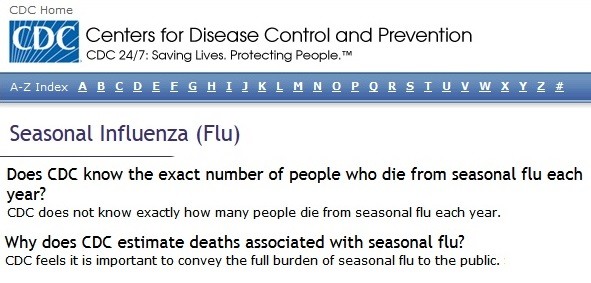
Actual text from the CDC website regarding flu deaths (as of 7/18/2014).
Lawrence Solomon, the research director of Consumer Policy Institute in Canada, wrote an article earlier this year in the Huffington Post questioning the accuracy of the CDC’s estimates:
The numbers differ wildly from the sober tallies recorded on death certificates — by law every certificate must show a cause — and reported by the official agencies that collect and keep vital statistics.
According to the National Vital Statistics System in the U.S., for example, annual flu deaths in 2010 amounted to just 500 per year — fewer than deaths from ulcers (2,977), hernias (1,832) and pregnancy and childbirth (825), and a far cry from the big killers such as heart disease (597,689) and cancers (574,743).
Even that 500 figure for the U.S. could be too high, according to analyses in authoritative journals such as the American Journal of Public Health and the British Medical Journal. Only about 15-20 percent of people who come down with flu-like symptoms have the influenza virus — the other 80-85 per cent actually caught rhinovirus or other germs that are indistinguishable from the true flu without laboratory tests, which are rarely done. In 2001, a year in which death certificates listed 257 Americans as having died of flu, only 18 were positively identified as true flu. The other 239 were simply assumed to be the flu and most likely had few true flu cases among them.
The CDC’s decision to play up flu deaths dates back a decade, when it realized the public wasn’t following its advice on the flu vaccine. During the 2003 flu season, “the manufacturers were telling us that they weren’t receiving a lot of orders for vaccine,” Dr. Glen Nowak, associate director for communications at CDC’s National Immunization Program, told National Public Radio. “It really did look like we needed to do something to encourage people to get a flu shot.”
The CDC’s response was its “Seven-Step ‘Recipe‘ for Generating Interest in, and Demand for, Flu (or any other) Vaccination,” a slide show Nowak presented at the 2004 National Influenza Vaccine Summit.
The CDC unabashedly decided to create a mass market for the flu vaccine by enlisting the media into panicking the public. An obedient and unquestioning media obliged by hyping the numbers, and 10 years later it is obliging still. (Source.)
Many Doctors and Nurses Oppose Mass Vaccination
There is growing opposition in the healthcare field to mass flu vaccination. However, the pharmaceutical lobby is very powerful, exerting great influence over medical colleges and universities, as well as using politicians to accomplish their goals.
This includes mandatory flu vaccination policies increasingly being put into place at healthcare facilities as a requirement to get full reimbursement of Medicare and Medicaid benefits. Understanding the risks involved in taking a flu shot, many healthcare professionals, particularly in the nursing field, are refusing mandatory flu vaccines even at the risk of losing their employment. (See: Nurses Across the U.S. are Taking a Stand Against Forced Flu Vaccines and Doctors Against Mandated Flu Vaccines.)
In the video above, Dr. Mark Geier explains the fraud behind the flu vaccine. Dr. Geier is NOT anti-vaccine. He is an MD and has a PhD in genetics. He spent 10 years working at the National Institute of Health, and was a professor at Johns Hopkins University as a geneticist. He is also the author of over 150 peer-reviewed publications.
He worked on vaccine safety and efficacy for more than 30 years. He was one of four scientists who worked to replace the DTP vaccine, a vaccine that caused every child to become sick with a high fever at the time of vaccination, with the DTaP vaccine, which is a more purified vaccine and causes illness due to fever in only 3% of those vaccinated.
In the video above, he explains that the flu shot causes Guillain-Barré Syndrome, and that the flu shot is not very effective in preventing the flu. He also explains that the CDC does not follow the law for vaccines in requiring long-term safety testing for the influenza vaccine like they do with other vaccines, as it is impossible to test a vaccine that changes every year. So the flu vaccine is basically an experimental vaccine that they want to give out to 300 million people every year. There are also no studies showing the safety of giving the flu vaccine to the same person every single year. However, Dr. Geier points out that the CDC is in the business of distributing flu vaccines, because they represent 300 million doses per year, whereas all the childhood vaccines together only number 20 million.
Dr. Geier goes on to explain that flu is “the wrong thing to vaccinate against” because you have to keep revaccinating against it every year, unlike childhood infectious diseases, such as smallpox, that are only vaccinated for once. Dr. Geier points out how ridiculous it is spend billions of dollars on a vaccine that might, at its best, save about 50 lives a year, when there are far more serious problems causing death which are more worthy of that kind of expenditure.
Be informed, don’t become a statistic of those damaged or killed by the flu vaccine! There are many other less dangerous ways to protect oneself from influenza.
Flu and Flu Vaccines:
What’s Coming Through That Needle – DVD
More Info
FREE Shipping Available!
Permission granted to republish according to Creative Commons guidelines. Please provide link back.




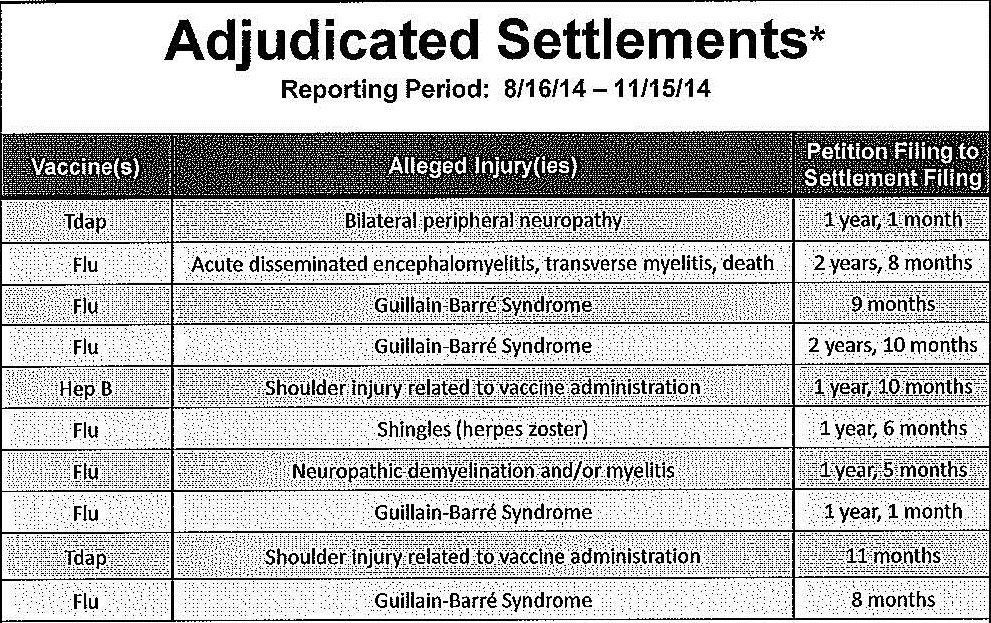
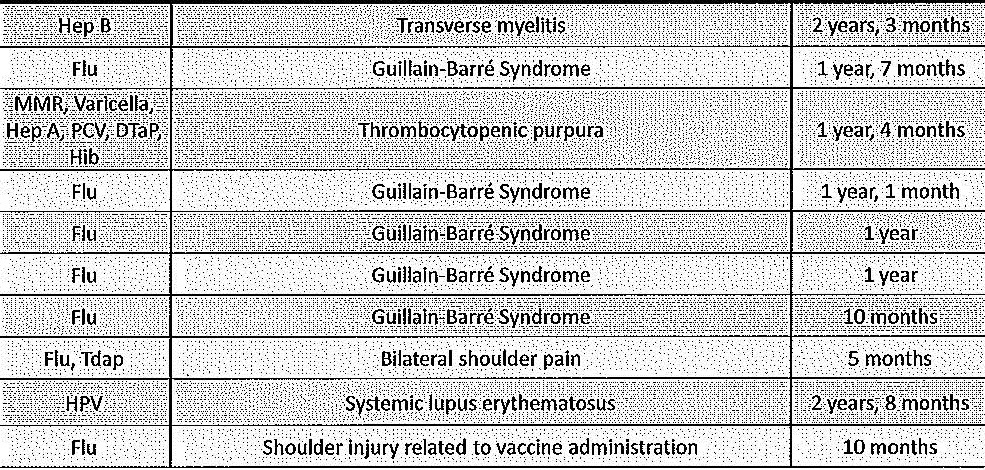
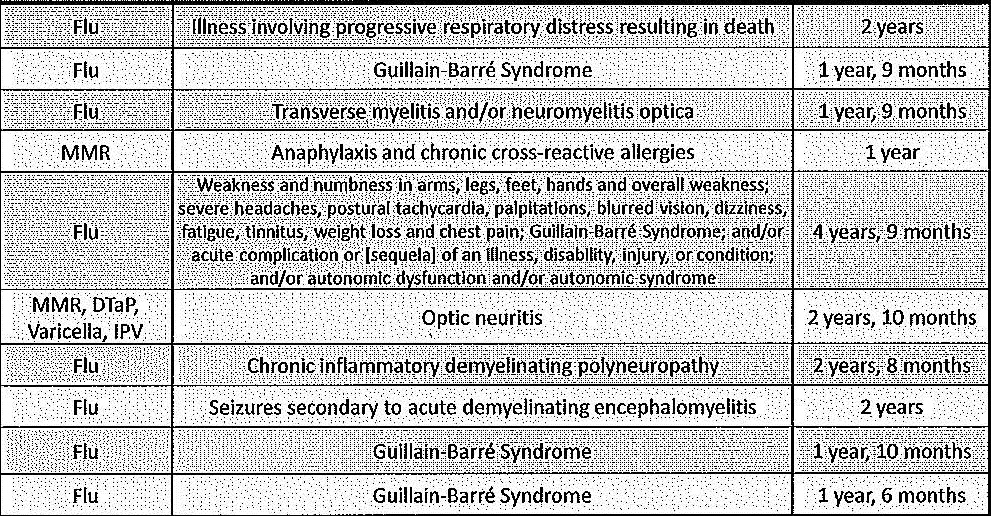
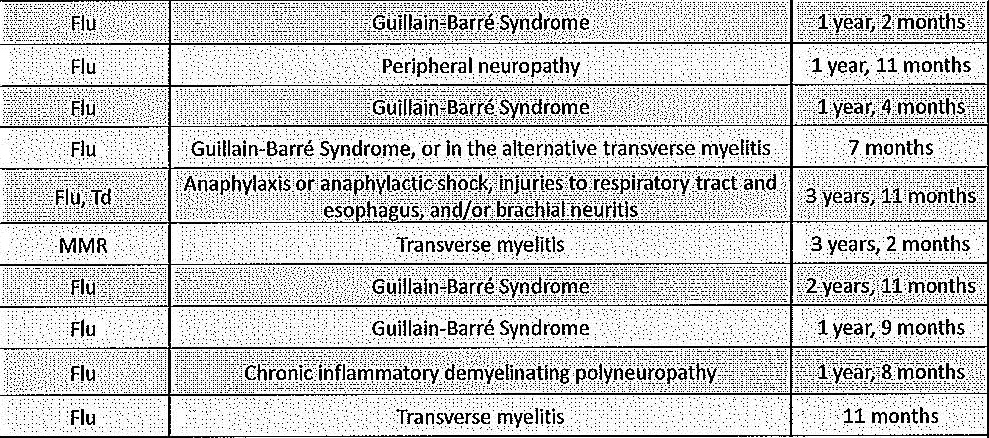
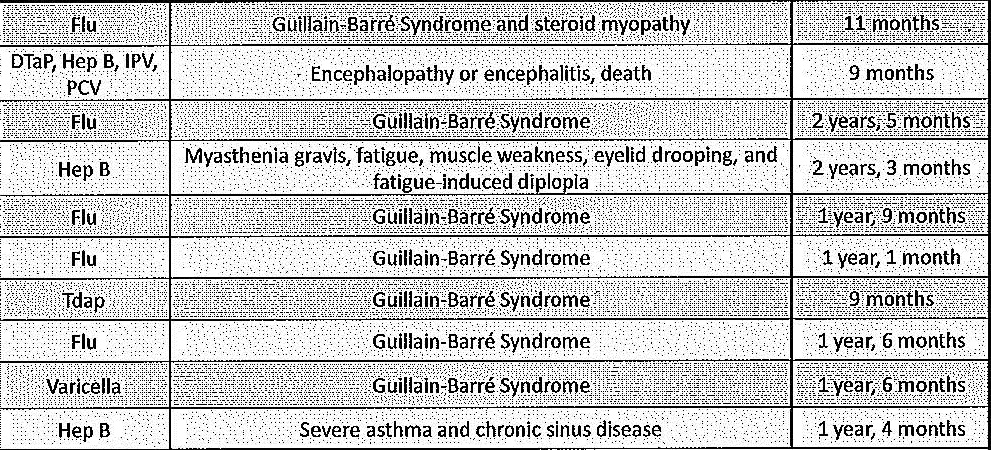
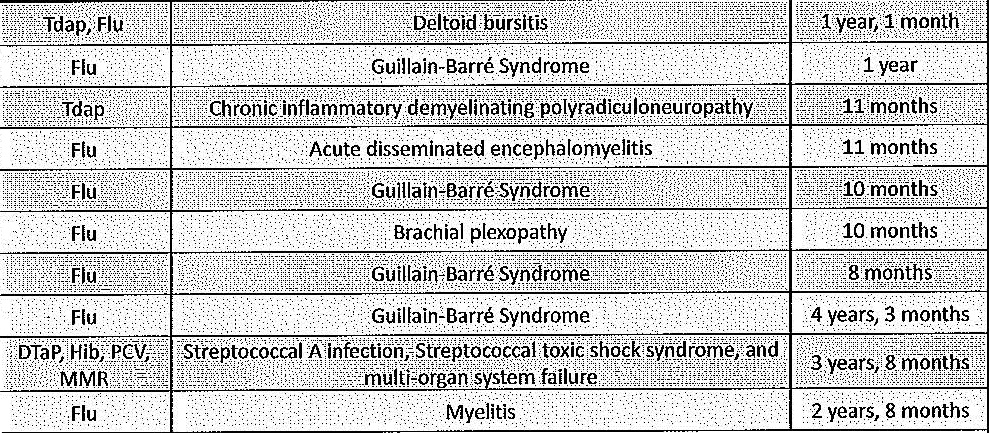
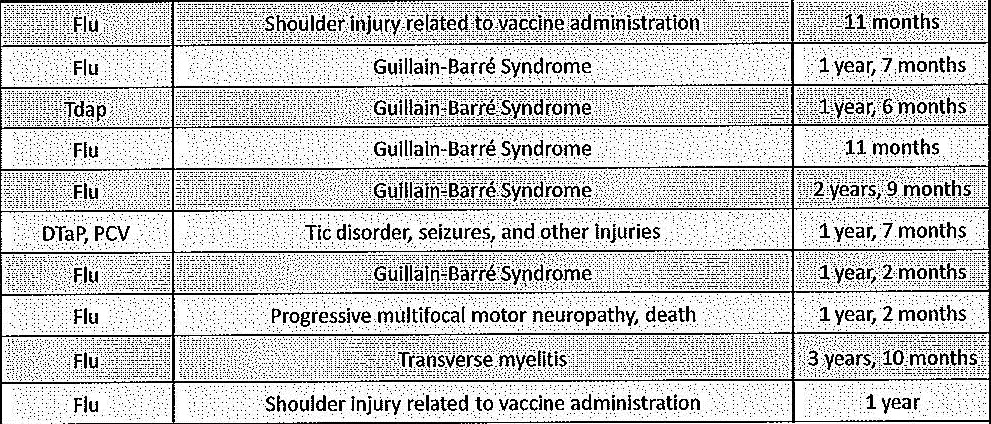
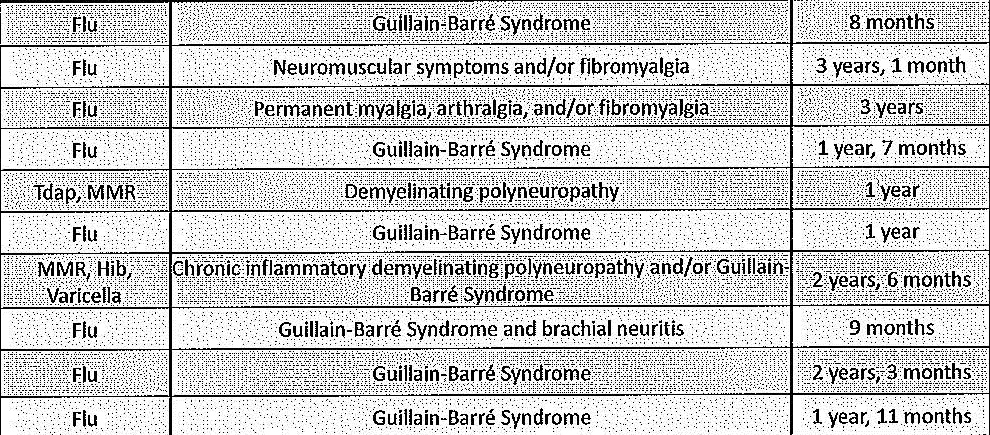
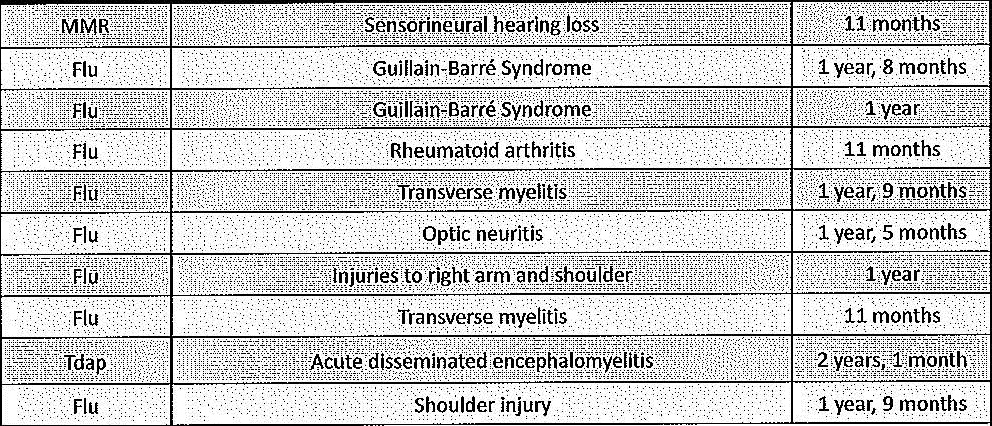
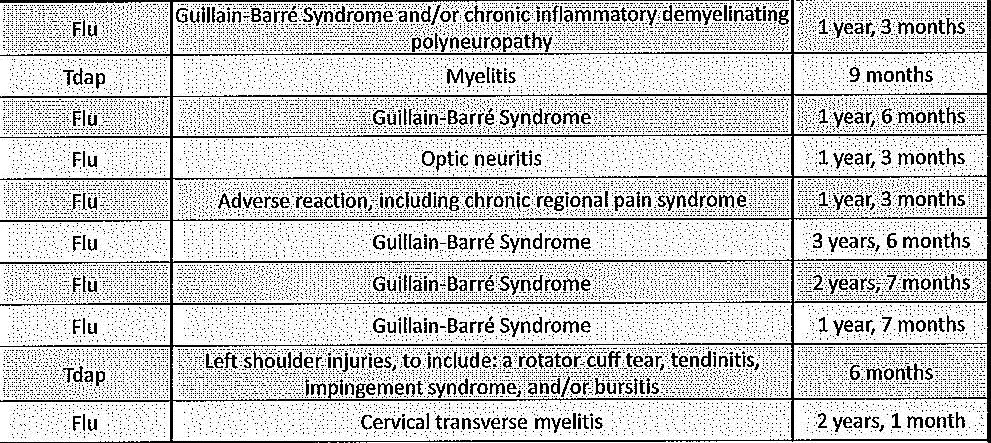

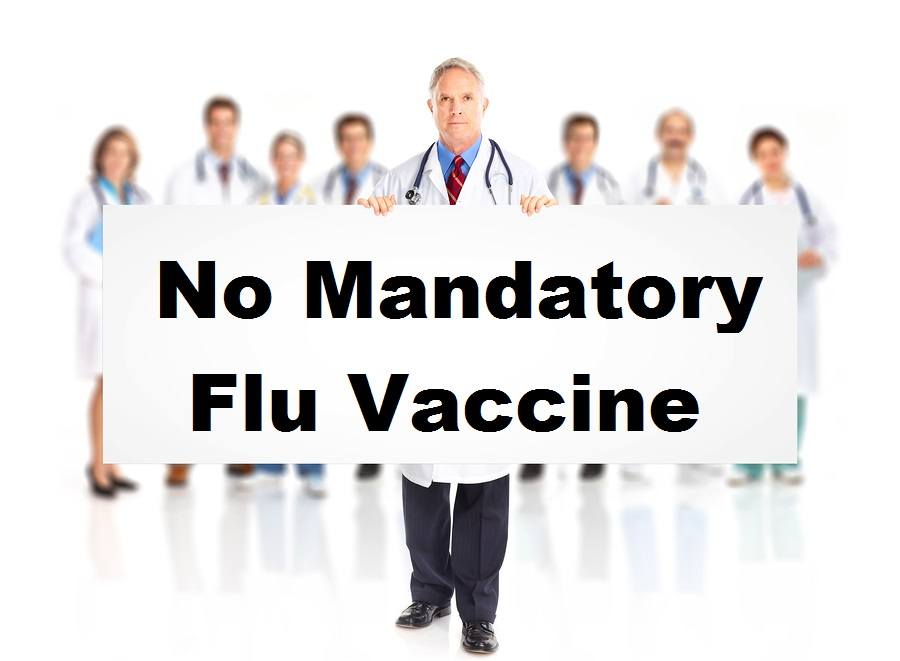

2 Comments